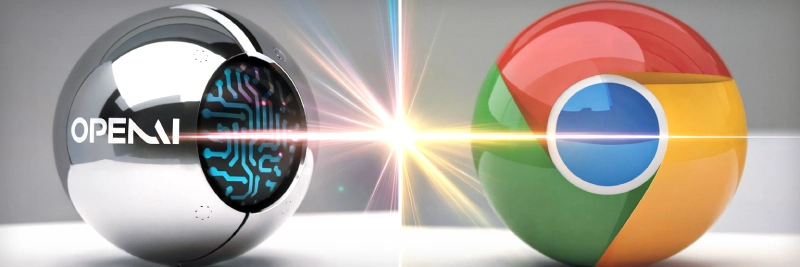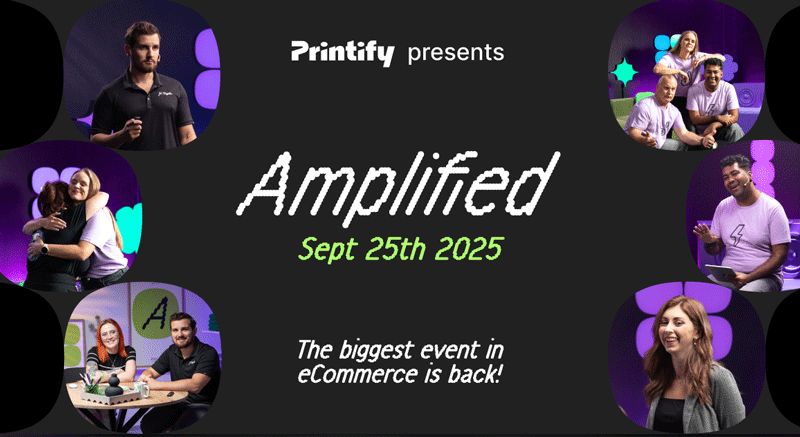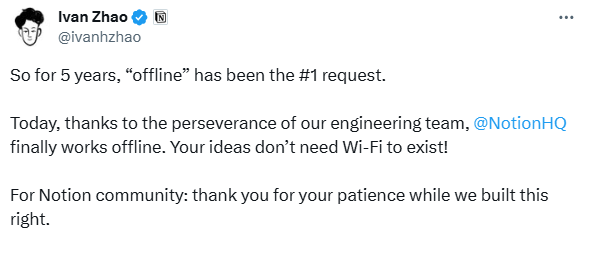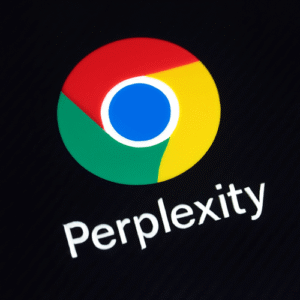OpenAI is reportedly preparing to launch an AI web browser, set to challenge Google Chrome’s dominance. The browser, expected in the coming weeks, aims to revolutionize web browsing with integrated artificial intelligence. By using a ChatGPT-like interface, it could reduce the need for users to visit websites, offering more direct AI interactions.
If successful, OpenAI’s browser could slow (down) Google’s advertising model, which relies on data from Chrome’s 3 billion users to effectively target ads. With 500 million weekly active ChatGPT users, OpenAI has direct access to valuable user data, which could challenge Google’s ad-driven revenue. While details of the browser are still unclear, its release could signal a major shift in the web browsing landscape.
What Is Unique About OpenAI’s Browser
The main difference with OpenAI’s browser is that it uses AI right in the shopping experience. Users might not just be able to browse standard websites; they could also talk to AI bots that do things for them. The browser would cut down on the number of steps needed to do everyday things like making plans and filling out forms. This way of doing things could make browsing easier and give OpenAI an edge over other computers.
Also, ai web browser would probably work with its other tools and services, making an AI-powered experience that works well in both personal and professional settings. If a lot of people use this browser, it could open up new ways to use AI, which would change not only how we look, but also how we live and work.
A direct challenge to Google’s advertising model.
If OpenAI’s AI browser is successful, it might offer a significant threat to Google’s advertising strategy, which now depends on Chrome’s 3 billion users to properly target ads. Google gathers massive quantities of data via its browser, allowing it to develop highly targeted ads that earn enormous money. OpenAI, on the other hand, has its own developing ecosystem of 500 million weekly active ChatGPT users, and with access to this rich data, it has the potential to challenge Google’s supremacy in digital advertising.
Consider the ramifications if even 10% of ChatGPT users converted to OpenAI’s browser—that’s 25 to 50 million potential new users right now. It would be directly at war with Chrome, particularly if user privacy and AI-powered browsing grow more desirable to customers.
Tough Competition in the Browser Market
OpenAI has an impossible task. Google Chrome, which is used by more than 3 billion people, currently controls more than two-thirds of the global browser market, according to online analytics firm StatCounter. Apple’s Safari, by contrast, is far behind, with just 16% share. Last month, OpenAI announced that it has 3 million paying corporate customers for ChatGPT, which is significantly less than Chrome’s massive user base.
OpenAI will not only have to compete with Chrome’s large market share, but alternative AI-powered browsers are also being developed. Perplexity, which operates a popular AI search engine, has created Comet, an AI-powered browser that can perform actions on behalf of the user. In addition, two other AI businesses, The Browser Company and Brave, have created AI-powered browsers that are capable of exploring and summarizing material from the Internet.
With so many players entering the AI-powered browser space, OpenAI faces tough competition as it looks to carve out its own niche.
AI Web Browser: A Strategic Challenge to Google
Google Chrome’s power is not just due to its large user base; it is also the foundation of Alphabet’s advertising business. Chrome captures vast quantities of user data, which allows Google to target adverts more efficiently and economically. This technique has become so effective that the US Department of Justice has ordered Chrome’s divestment after a decision that Google has an unconstitutional monopoly in internet search. Despite this decision, Google plans to appeal and has yet to agree to sell Chrome.
However, OpenAI’s browser seeks to challenge this paradigm. Built on Chromium, the same open-source technology that powers Google Chrome, Microsoft Edge, and Opera, OpenAI’s browser may provide an alternative to Google’s data-centric system. The choice to utilize Chromium enables OpenAI to profit from the technology that powers Chrome, but it also puts the business in direct rivalry with Google.
To strengthen its position, OpenAI has recruited two former Google vice presidents, Ben Goodger and Darin Fisher, who were part of the original team that created Google Chrome. This step demonstrates OpenAI’s genuine intentions to reach the browser industry. Furthermore, OpenAI has shown interest in purchasing Chrome if antitrust regulators succeed in forcing its divestment.
By developing its own browser, OpenAI has more control over user data collecting and can provide an experience that is less dependent on conventional advertising. This might represent a big shift for how the internet works, particularly as user privacy and AI-powered surfing grow more crucial to consumers.
Conclusion
OpenAI’s new AI-powered browser has the potential to transform online surfing by making common activities easier and more efficient. With a focus on AI integration and privacy, it is an attractive alternative to Google Chrome. This might threaten Google’s supremacy, particularly in the domain of targeted advertising. While OpenAI confronts fierce competition in a market dominated by Google, its rising user base and strategic initiatives position it as a major challenger with the potential to transform the future of online browsing and interaction.













Please, Ignore this post comment!